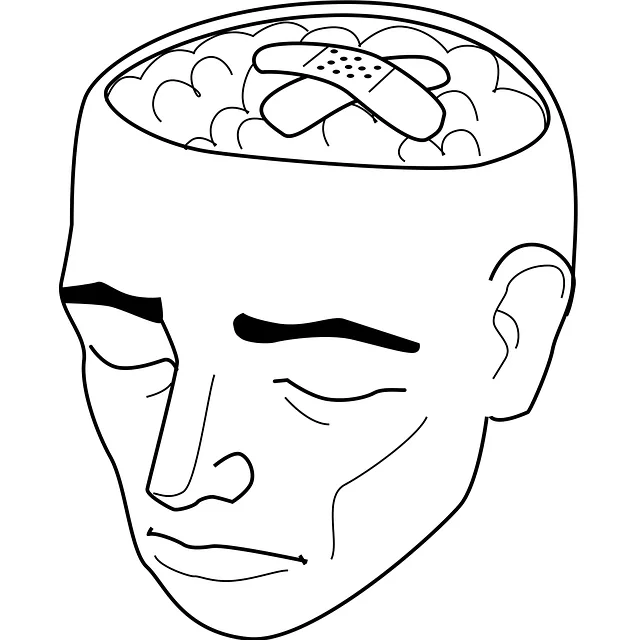Evaluating Kaiser Centennial’s Mental Wellness Programs: Measuring Therapist Quality and Patient Satisfaction
Does Kaiser have good therapists in Centennial? Yes, thanks to a multi-faceted evaluation process at…….
In the realm of healthcare, particularly within mental health services, evaluating the quality and effectiveness of therapist performance is paramount. This article delves into the question: “Does Kaiser have good therapists in Centennial?” By exploring various facets, we aim to provide a comprehensive understanding of this topic, considering its local impact, global relevance, economic implications, technological advancements, policy frameworks, challenges, case studies, and future prospects. This detailed analysis will guide readers through the intricate world of mental health care, focusing on one specific region—Centennial, where Kaiser, a prominent healthcare provider, operates.
The question at hand essentially seeks to gauge the proficiency, competence, and effectiveness of therapists affiliated with Kaiser in Centennial, Colorado. It involves evaluating several critical factors:
The focus on therapist quality has been a growing concern within the healthcare industry, particularly in mental health services. Historically, access to quality therapy has been unevenly distributed, with urban areas often boasting better resources than rural or suburban regions. This disparity highlights the need for comprehensive evaluations of mental health care providers, such as Kaiser, to ensure equitable patient outcomes.
In recent years, there has been a heightened awareness of the impact therapist quality can have on patient recovery and overall healthcare satisfaction. Consequently, many healthcare organizations, including Kaiser, have implemented rigorous evaluation systems to monitor and improve therapist performance. This trend reflects a broader movement toward evidence-based practices and patient-centered care in mental health services.
The quest for high-quality mental health care is not limited to the United States; it is a global concern. Many countries are grappling with similar challenges, including ensuring access to competent therapists and addressing therapist shortages. Kaiser’s approach to therapist evaluation and training has garnered international interest as a potential model for enhancing mental healthcare worldwide.
Across different regions, there are varying trends in therapist availability and quality:
The mental health care market, driven by increasing demand and changing healthcare landscapes, is experiencing dynamic shifts:
Kaiser, like other healthcare providers, invests heavily in its therapy workforce:
The economic impact of “good therapists” extends beyond individual patient outcomes:
Technology plays a pivotal role in modern therapy practice:
The future of therapy is poised for significant technological advancements:
The regulation and governance of mental health care vary across jurisdictions but generally include:
These policies have a direct impact on therapist quality:
Despite Kaiser’s efforts to provide quality therapy, several challenges exist:
Addressing these challenges requires a multi-faceted approach:
Setting: A rural area within Centennial experiencing therapist shortages.
Initiative: Kaiser launched a targeted outreach program to attract and train local therapists, addressing the region’s unique challenges.
Outcomes: The program successfully increased the number of qualified therapists in the area, leading to improved access to mental health care for underserved populations. Patient satisfaction surveys revealed higher levels of comfort and trust in local therapists.
Context: A growing elderly population in Centennial with limited mobility.
Strategy: Kaiser implemented a comprehensive telehealth program, offering specialized therapy sessions tailored to the needs of older adults.
Impact: The initiative improved access for this vulnerable demographic, resulting in better management of chronic conditions and enhanced overall well-being. Patient feedback highlighted the convenience and effectiveness of remote therapy.
Scenario: Young adults in Centennial struggling with stress and anxiety related to academic pressures.
Solution: Kaiser developed a user-friendly digital therapy platform offering self-help resources, guided meditations, and interactive tools for managing stress.
Benefits: The platform empowered young adults to take an active role in their mental health, providing convenient support between therapy sessions. Initial studies showed significant reductions in anxiety symptoms among users.
The question, “Does Kaiser have good therapists in Centennial?” is a complex one, requiring a comprehensive understanding of therapist quality, global trends, economic considerations, technological advancements, policy frameworks, and community impact. Through this article, we have navigated various aspects of this topic, highlighting the significance of consistent evaluation and improvement efforts.
Kaiser’s commitment to therapist quality is evident in its rigorous evaluation systems, investment in training, and response to regional challenges. By addressing barriers and embracing innovation, Kaiser can continue to enhance its therapy services, ensuring better patient outcomes and improved mental healthcare in Centennial and beyond.
Q: How does Kaiser ensure the competence of its therapists?
A: Kaiser implements comprehensive evaluation systems that include ongoing performance assessments, peer supervision, and regular professional development opportunities. These measures ensure therapists maintain high standards of practice.
Q: Are there any specific technologies Kaiser uses to improve therapy delivery?
A: Yes, Kaiser leverages telehealth for remote therapy sessions, digital therapeutics through online platforms, and artificial intelligence (AI) for initial assessments and patient support. These technologies enhance accessibility and complement traditional therapy.
Q: How does the therapist shortage impact mental health care in Centennial?
A: The therapist shortage can lead to longer wait times for patients, reduced access to specialized services, and challenges in maintaining consistent care. Kaiser addresses this by expanding training programs and implementing innovative care models.
Q: What role does patient feedback play in improving therapy services?
A: Patient feedback is invaluable for identifying areas of strength and weakness in therapist performance. Kaiser encourages patient input through various channels, using it to enhance service delivery and ensure patient-centered care.
Q: How can mental health care be made more accessible in rural areas?
A: Telehealth initiatives, community outreach programs, and innovative digital solutions can significantly improve accessibility in rural areas. Kaiser’s successful rural therapy outreach program serves as a model for others to follow.

Does Kaiser have good therapists in Centennial? Yes, thanks to a multi-faceted evaluation process at…….

Kaiser Centennial focuses on coping skills development as a core part of mental well-being support,…….

Public awareness campaigns, like those offered by Kaiser Permanente in Centennial, shape societal pe…….

Community Outreach Programs led by Kaiser in Centennial play a vital role in connecting diverse popu…….

Positive thinking is a powerful tool for enhancing overall well-being and improving mental health, s…….

Anxiety disorders, prevalent across various life settings, are characterized by persistent fear and…….